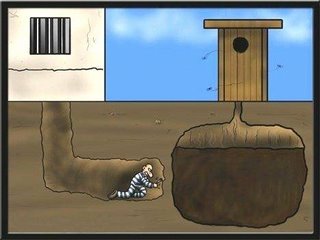I have worked with entrepreneurs that started as a one man shop and went on to build a multi-million dollar business. Each of these entrepreneurs had a dream and a vision of what could be. They put in a lot of thought, planning, preparation and after securing funding (some with bank financing and others with personal credit card loans) launched their business. The early years were always difficult and punctuated with long hours and little pay. With a reasonable degree of execution sales began to grow with profitability not far behind. The long hours finally paid off.
What next?
Entrepreneurs have three choices: grow, stay small or die. Today’s competitive business environment does not allow any business to maintain the status quo over the long term. If the business model is working and achieves a degree of success, it will attract copy cats who will offer a slightly different value proposition and variations on the product or service.
In order to stay competitive, entrepreneurs have to do decide whether or not they want to grow the size of their business or stay small. Lifestyle considerations and a lack of desire to manage dozens of employees may mandate remaining small. Remaining small is not a bad strategy. It often allows a business to provide personalized services and to keep a loyal base of customers.
However, if an entrepreneur elects to grow, a shift in management style needs to emerge before a business can execute on profitable growth. Unfortunately, I have seen dismal failures as small entrepreneurial companies attempt to migrate to a larger business format without making the basic changes necessary to adequately execute on a growth strategy. In making this transition to a larger business format, entrepreneurs often make three critical mistakes.
1. The inability to delegate properly.
2. Hiring the wrong people.
3. A lack of systems to support growth.
A few years ago I was coaching a mid career executive in a launching new business. He was a classic hands-on-manager. He was the production manager for a large manufacturing company. In his corporate career, he was involved in the initial product design through final assembly. When he started his own business he hired talented people and delegated the work but did NOT delegate responsibility. He maintained all decision making authority because his own money was on the line. He was perplexed when good people continually left the company. In a coaching session, I asked about his delegation style and learned he had a Lone Ranger delegation style. He would swoop in and make or approve (and often changing) decisions and then disappear. New employees would think, “Who was that masked man?”
With some help he gradually began to delegate both the work AND the responsibility and then simply got out of the way. The business took off and began to reach its potential.
The inability to adequately delegate decisions and responsibility and then get out of the way is one reason small business stays small.
The next installment – hiring the right people can super charge growth.
Why Small Business Stays Small – Part II
In my blog entry I gave one reason small business stays small. Today, I will share another reason small business stays small.
Why Small Business Stays Small – Part III
In my last blog entry we explored how hiring the wrong people creates a stone wall in growing a business.

